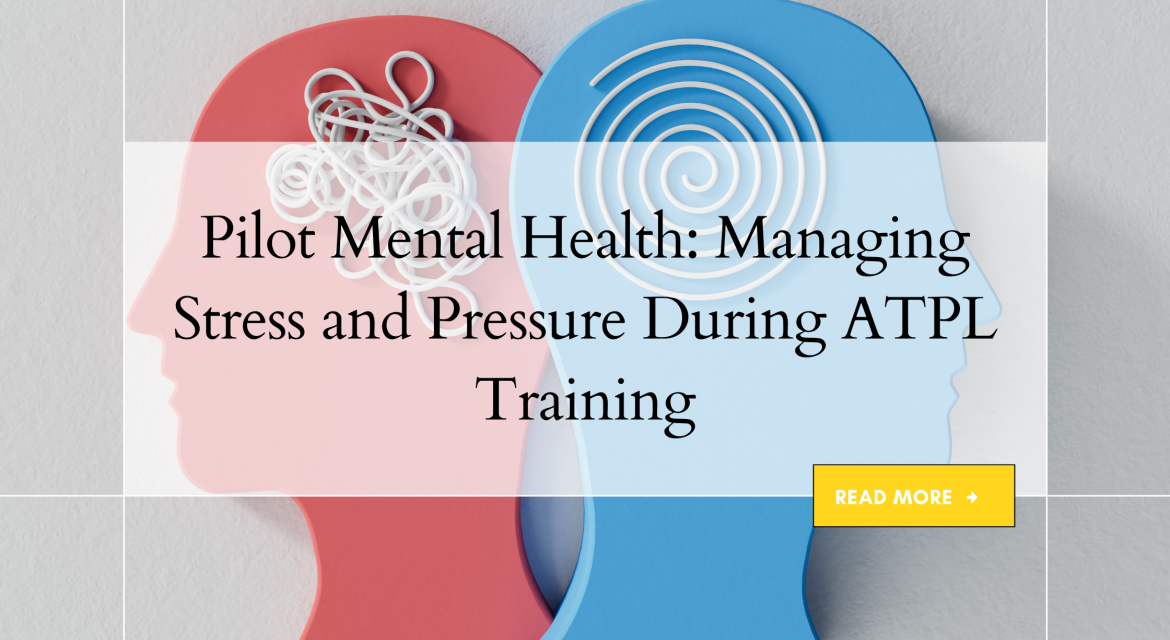Becoming a professional pilot is one of the most rewarding journeys, but it is also among the most demanding. For many students, ATPL training represents not only a career milestone but also a period of immense stress, long study hours, and constant pressure to perform.
At Airman’s Ground, we believe that while academic excellence is vital, mental health and resilience are equally important.
Why Mental Health Matters in ATPL Training
Pilots are expected to make decisions under pressure, handle complex information, and remain calm in challenging environments. Training for an ATPL exam already simulates much of this pressure, and students often experience:
-
Performance anxiety before exams
-
Long study hours with little rest
-
Fear of failure due to the high stakes of first-attempt success
-
Difficulty balancing personal life with intense study schedules
Acknowledging these pressures is the first step in managing them.
Common Stress Triggers During ATPL Training
While every student experiences challenges differently, here are some of the most common stressors:
-
Heavy workload: 14 subjects to prepare for can feel overwhelming.
-
Time management: Struggling to balance multiple subjects with limited time.
-
Fear of underperforming: Worrying about the consequences of failure.
-
Isolation: Many students study alone, which can increase stress.
Coping Strategies for ATPL Students
The good news is that stress can be managed with the right mindset and habits. Here are some proven strategies:
1. Break Down the Workload
Instead of treating ATPL as a mountain of 14 subjects, break it into manageable parts. Pairing subjects effectively (like Navigation + Meteorology) reduces pressure and makes study time more efficient.
2. Stick to a Structured Schedule
Creating a study plan with realistic goals ensures consistency without burnout. Personalized schedules, like those we provide at Airman’s Ground, help students focus on progress over perfection.
3. Prioritize Rest and Sleep
Fatigue directly affects memory and concentration. Short study sprints with regular breaks, combined with adequate sleep, are essential for long-term performance.
4. Seek Guidance, Don’t Isolate
Studying in isolation can intensify stress. Mentors and instructors not only provide academic guidance but also emotional support, reminding students they are not alone in this journey.
5. Practice Relaxation Techniques
Simple practices like deep breathing, mindfulness, or even short walks can lower anxiety before and during study sessions.
How Airman’s Ground Supports Mental Health
At Airman’s Ground, we design training to support both academic excellence and student well-being. With:
-
Personalized study plans to reduce overwhelm
-
Effective subject pairing for better focus
-
Regular mentoring sessions to track progress and relieve stress
-
100% first-attempt pass rate that boosts student confidence
Our goal is to ensure every student not only passes but also feels empowered throughout the process.
Stress and pressure are natural companions of ATPL training, but they don’t have to define your journey. By managing your mental health, building resilience, and having the right support system, success becomes not just possible, but inevitable.

